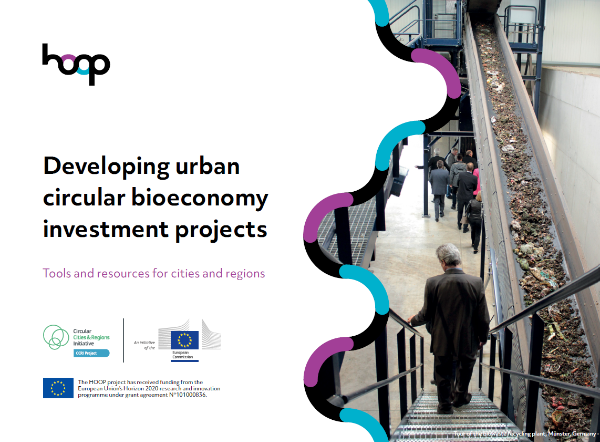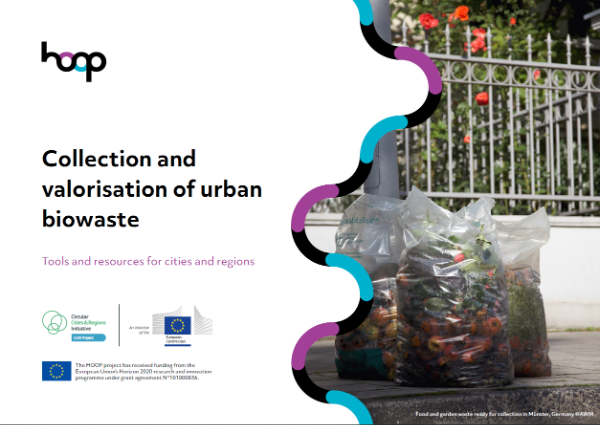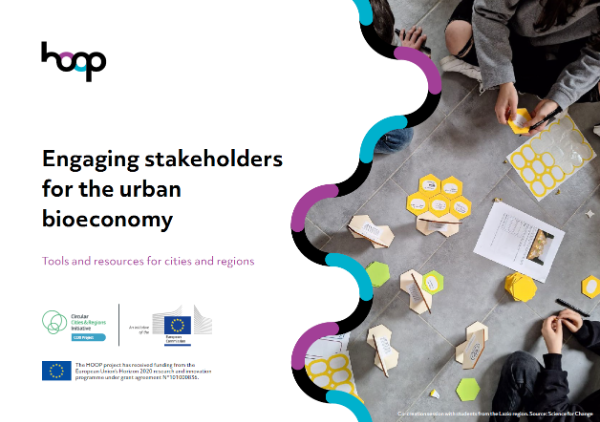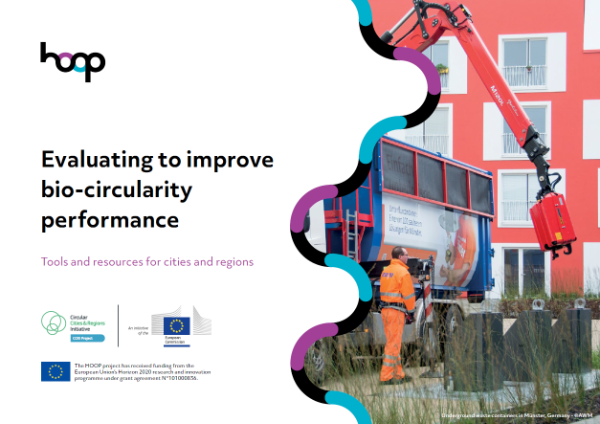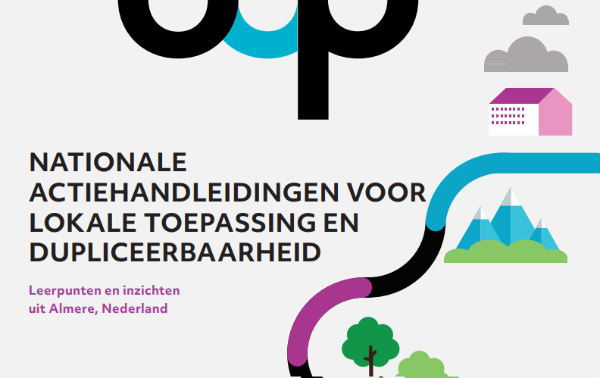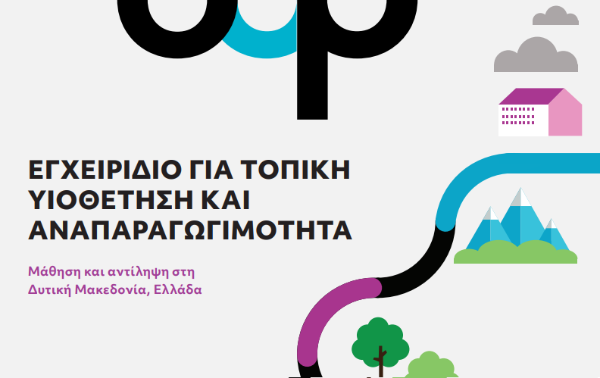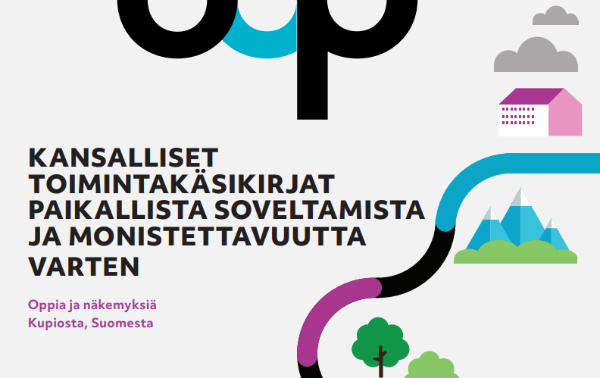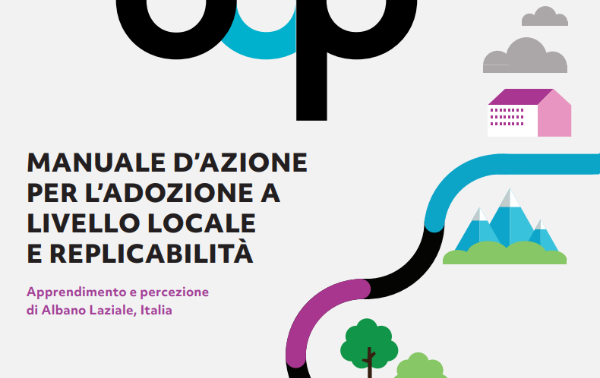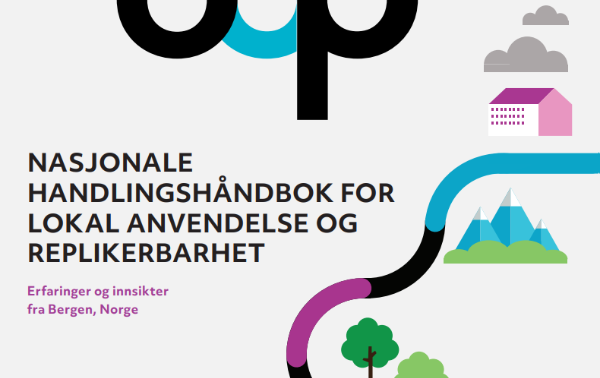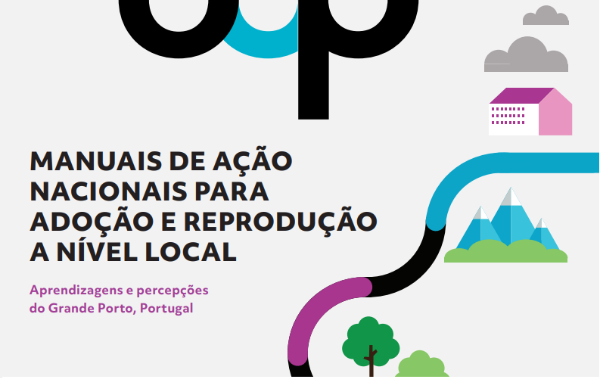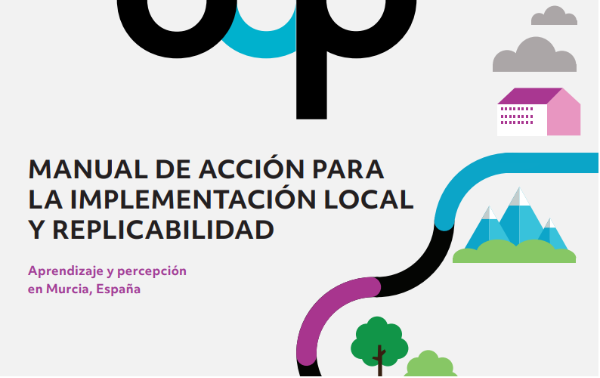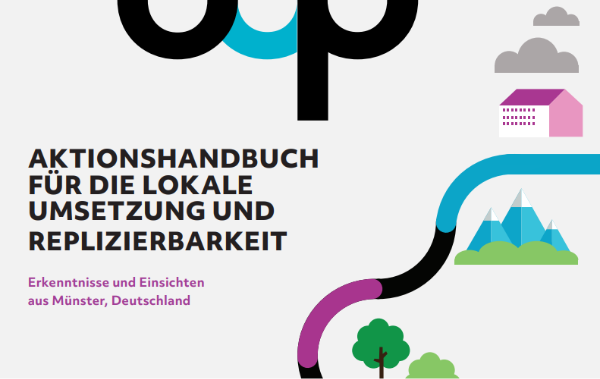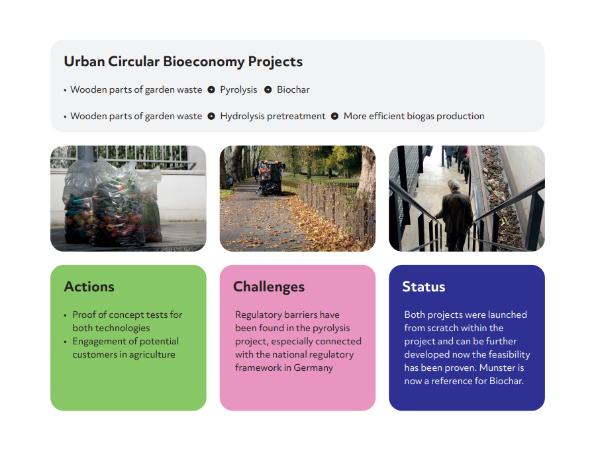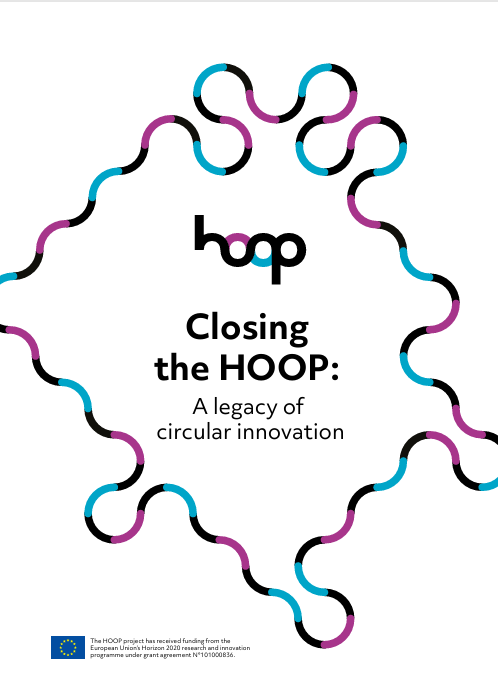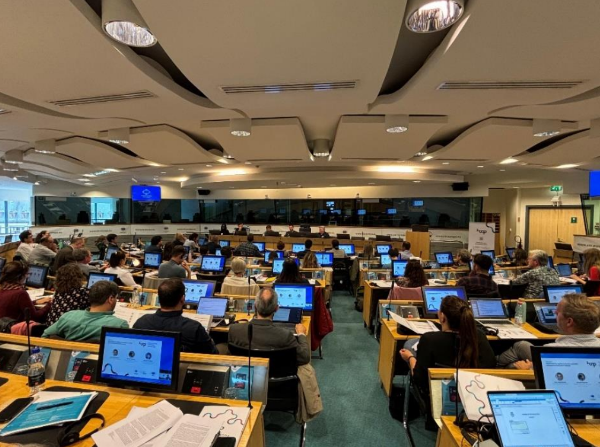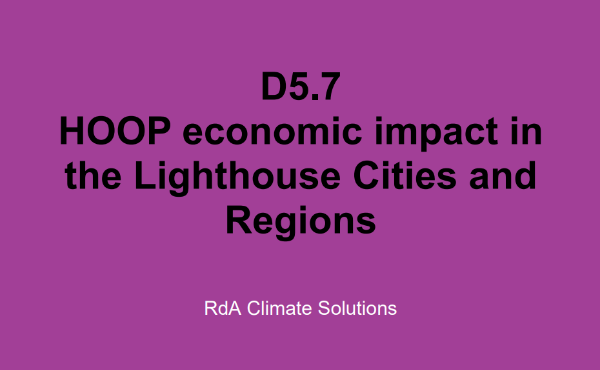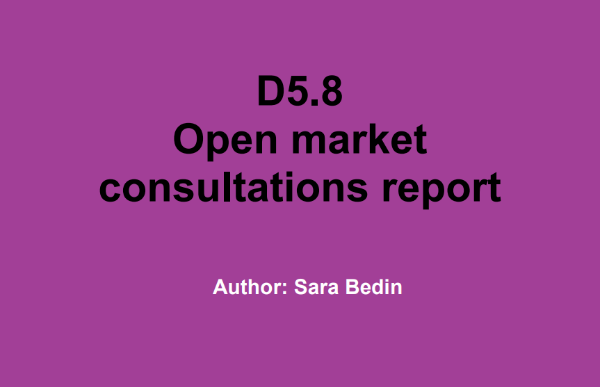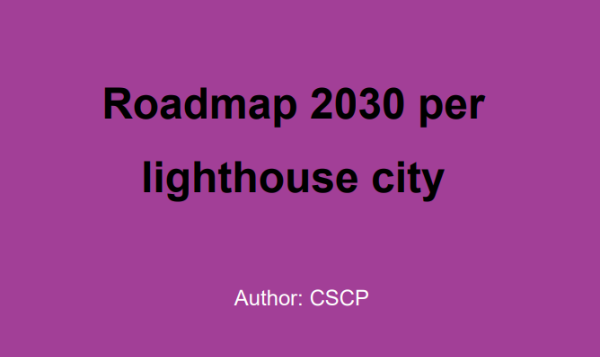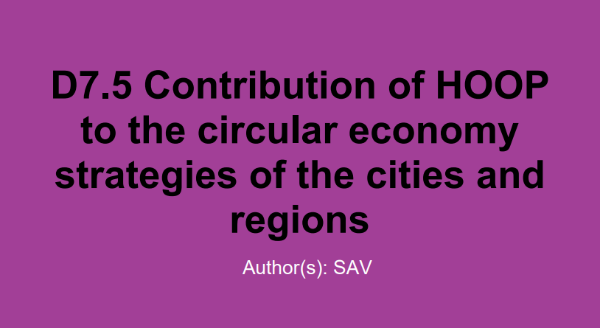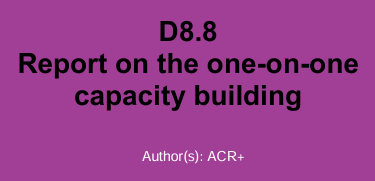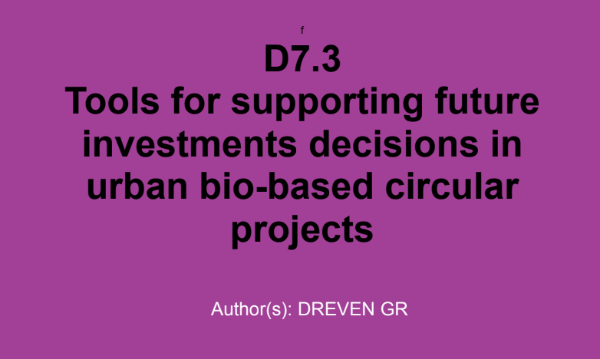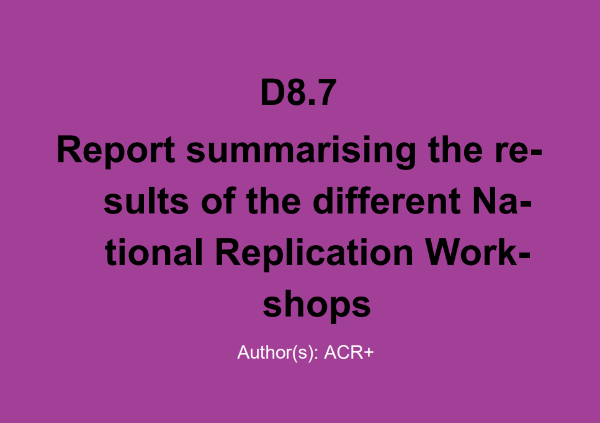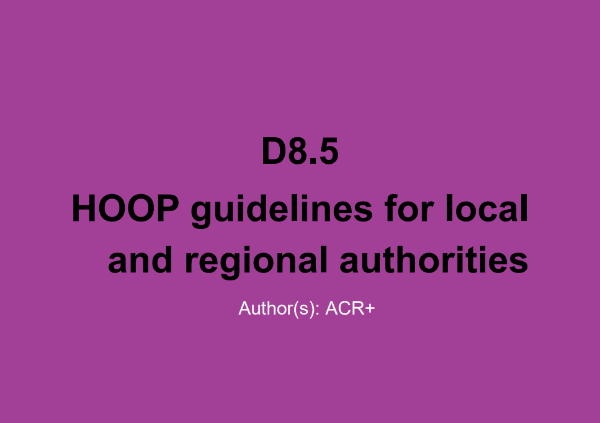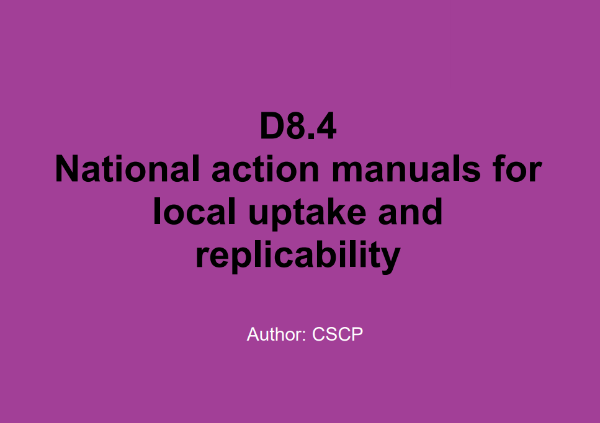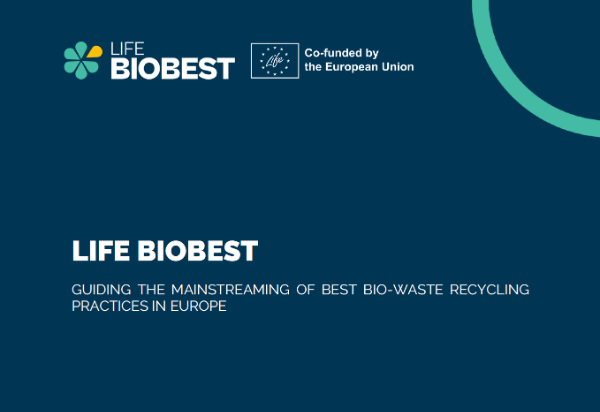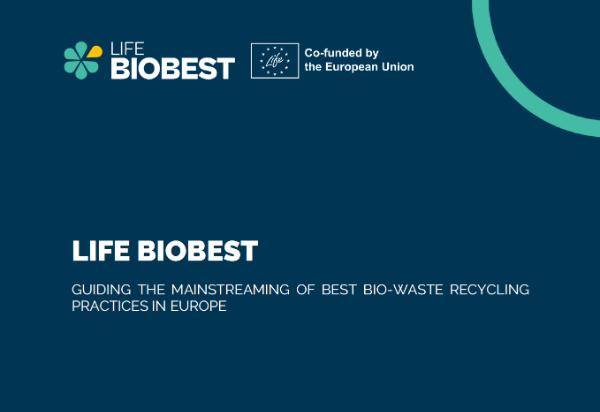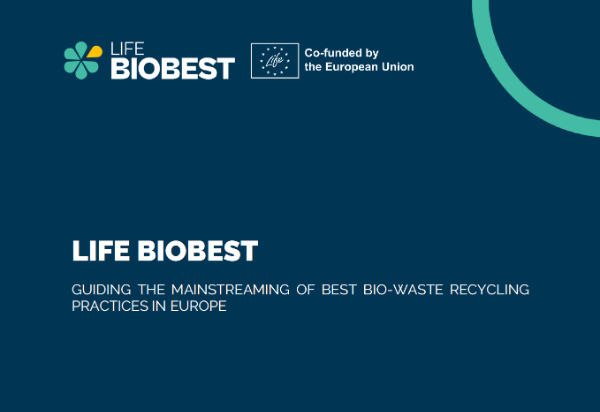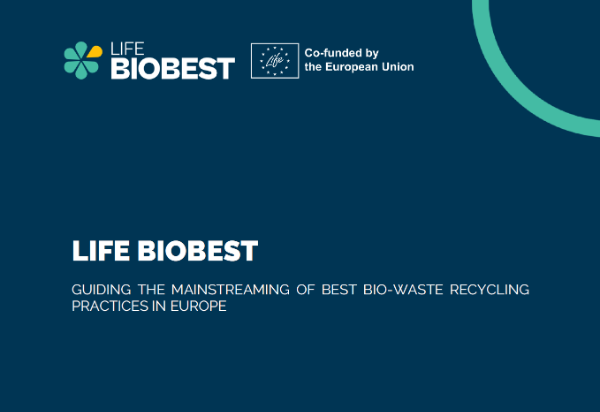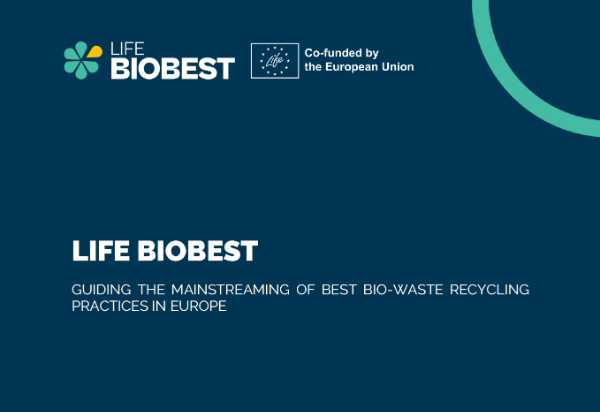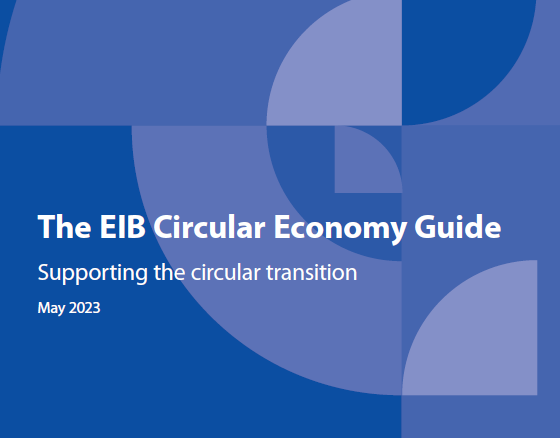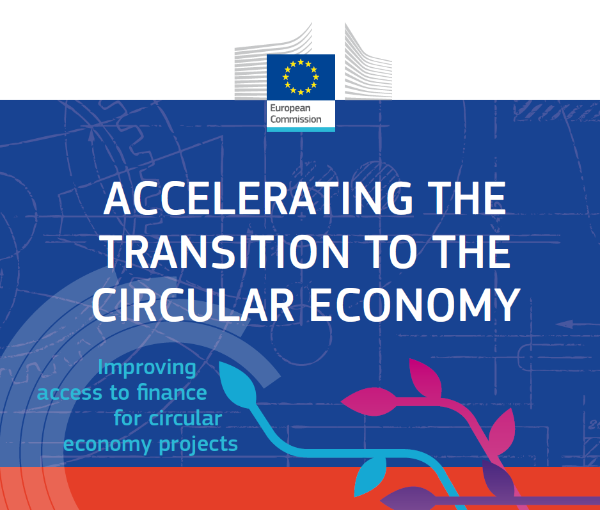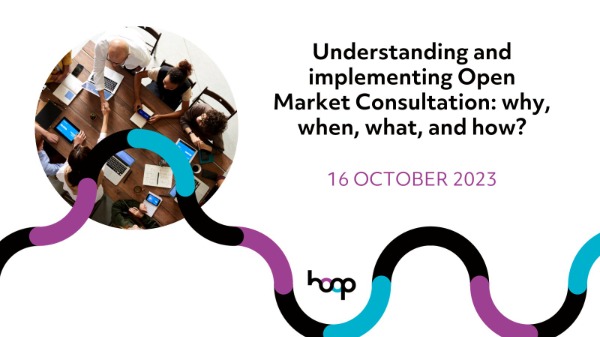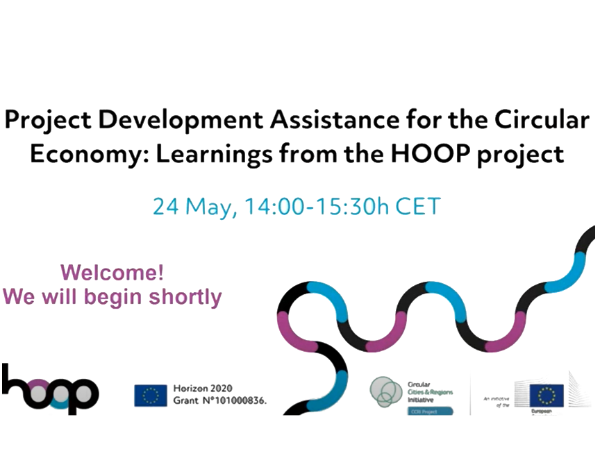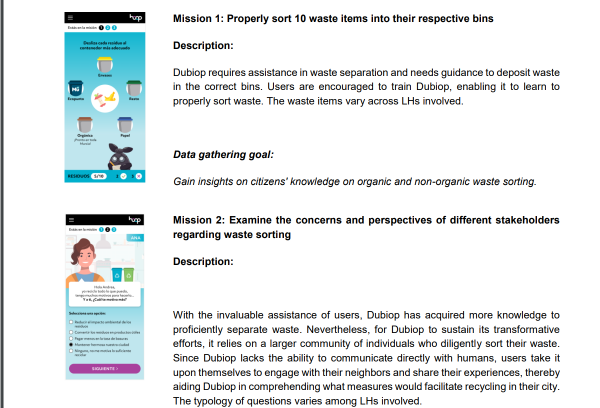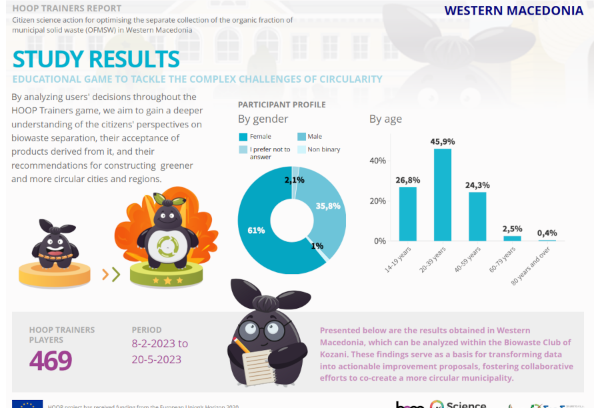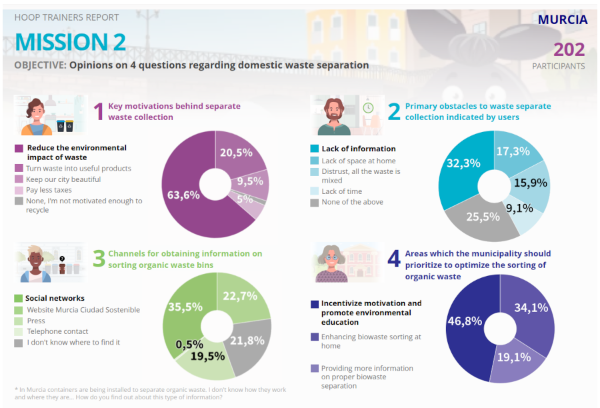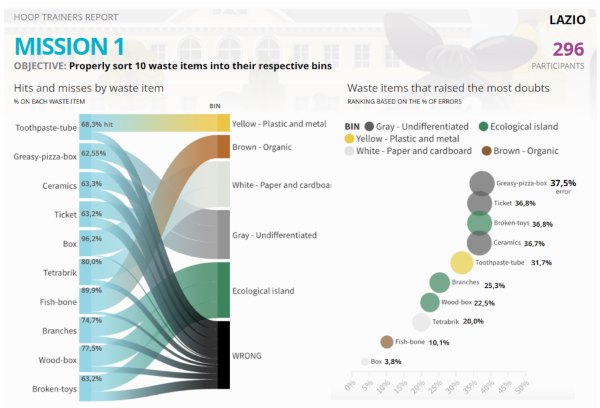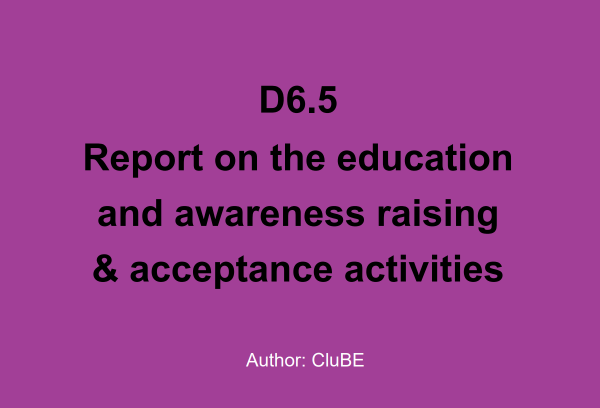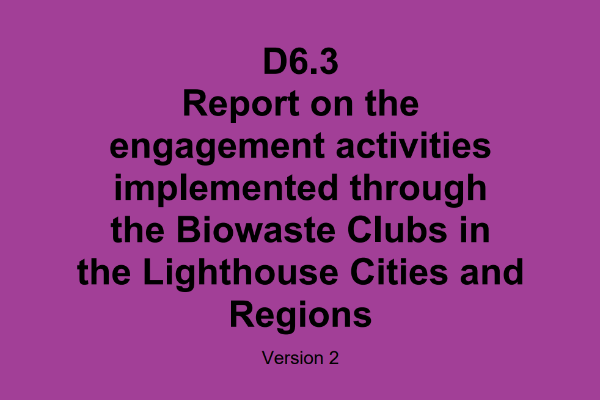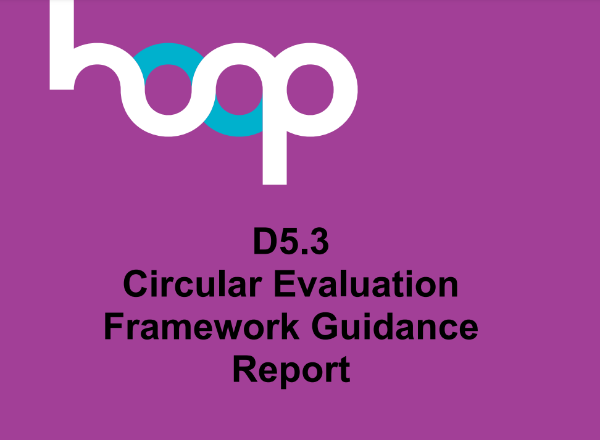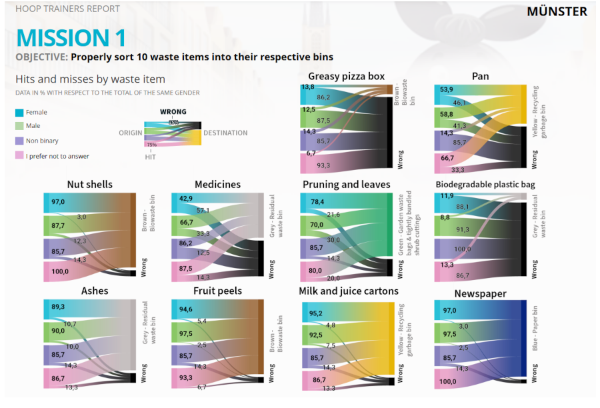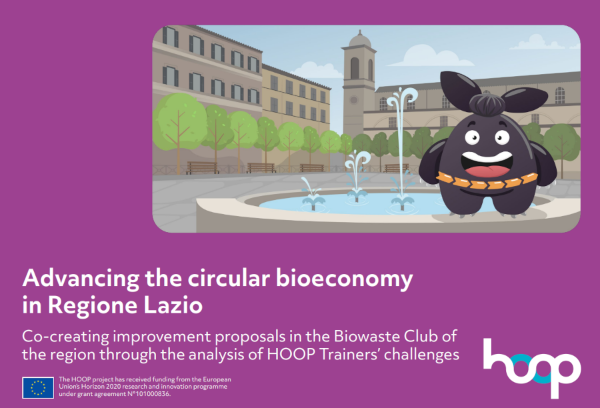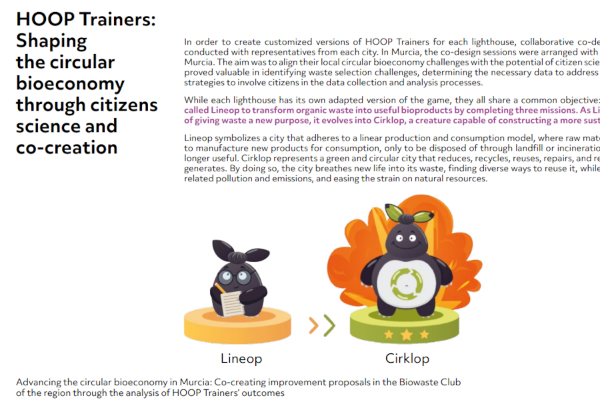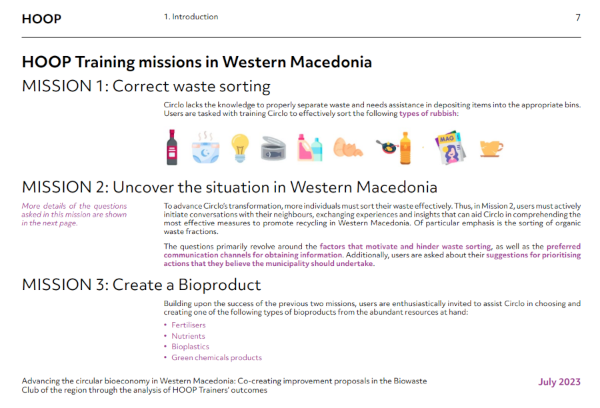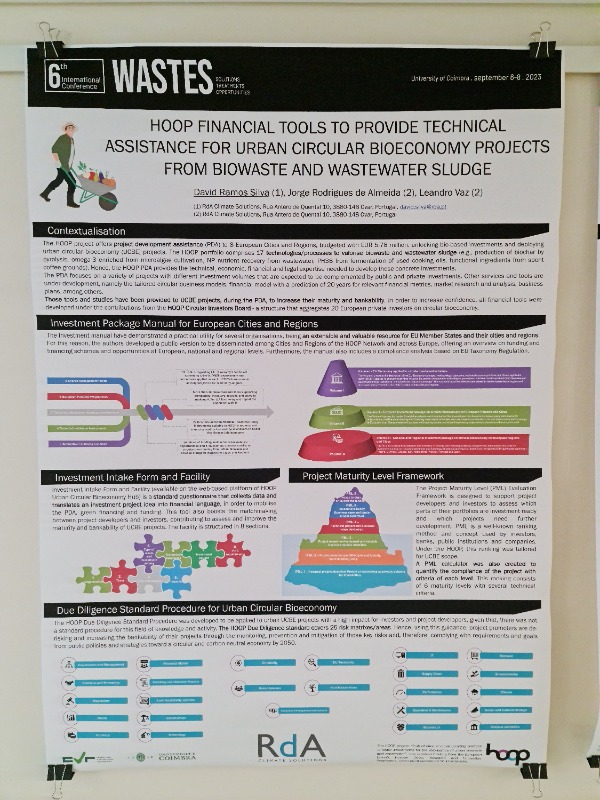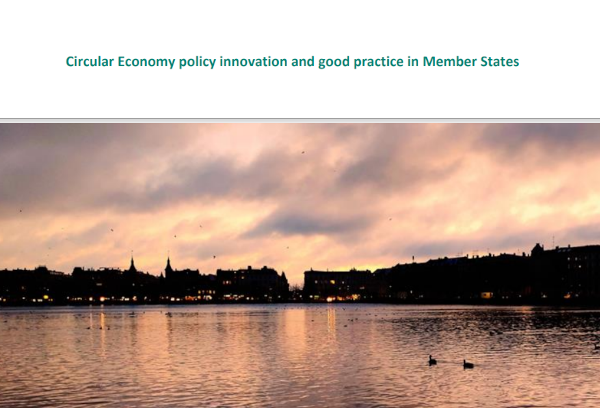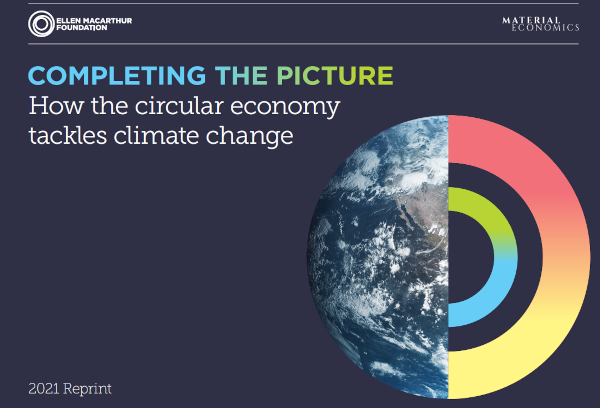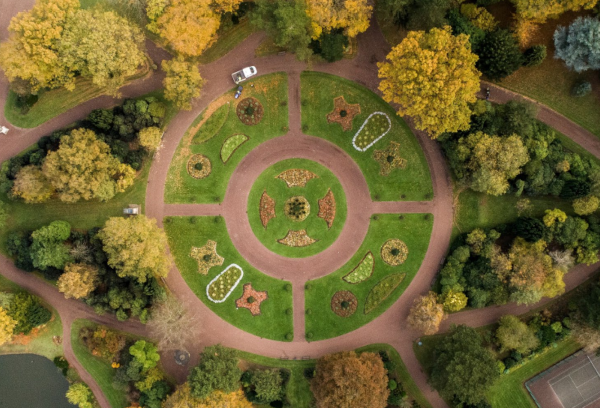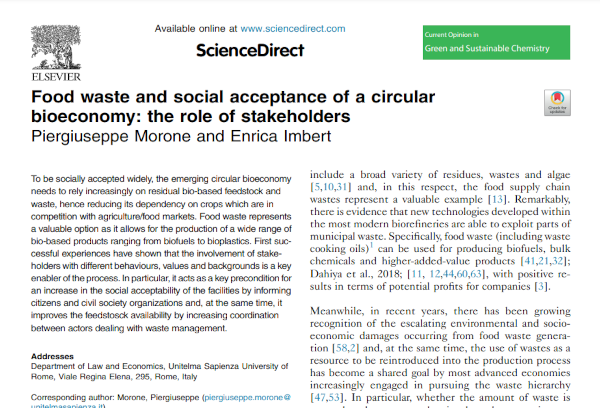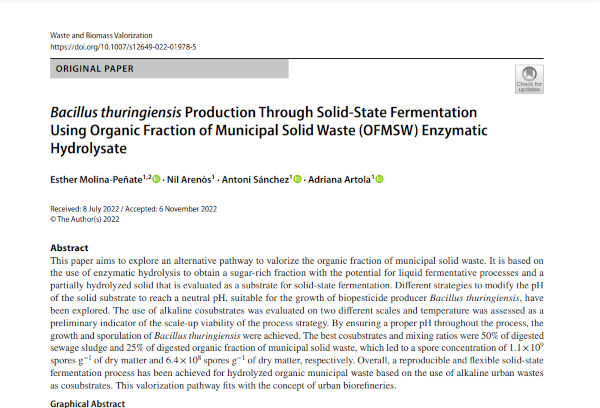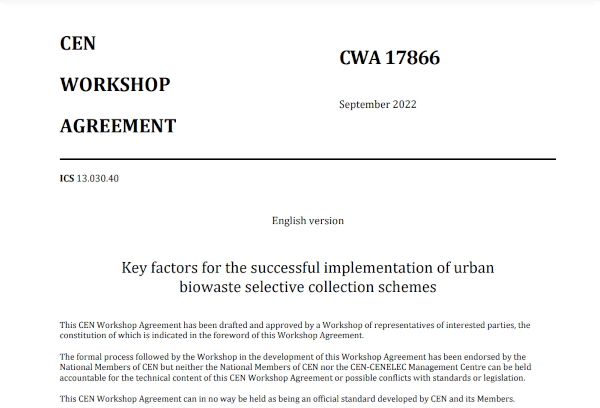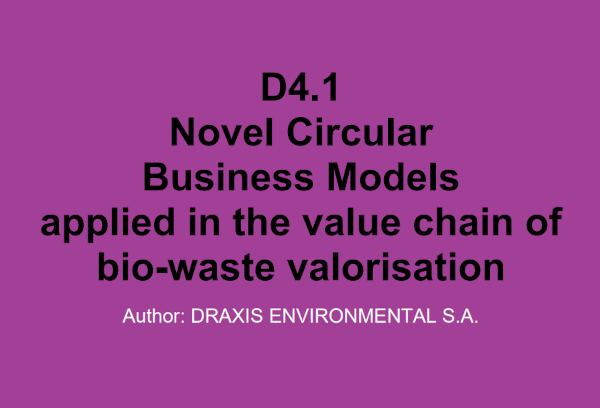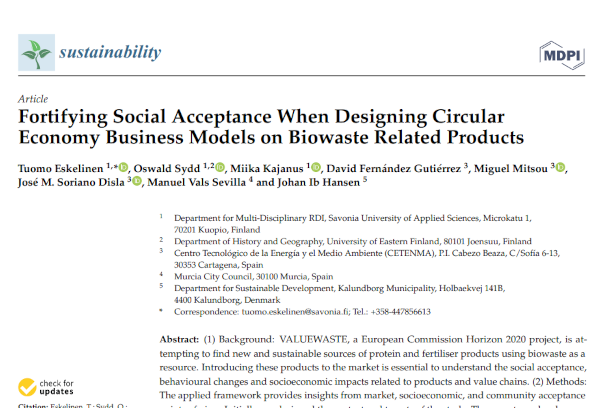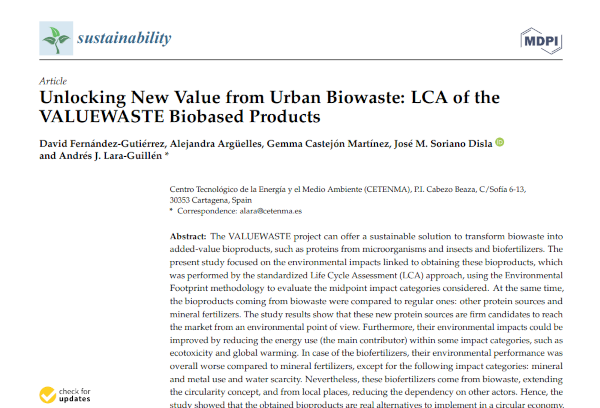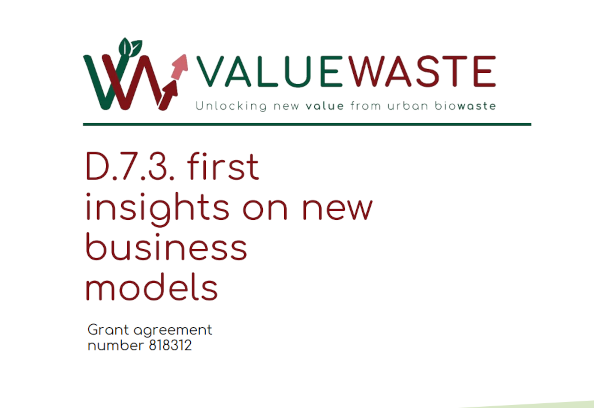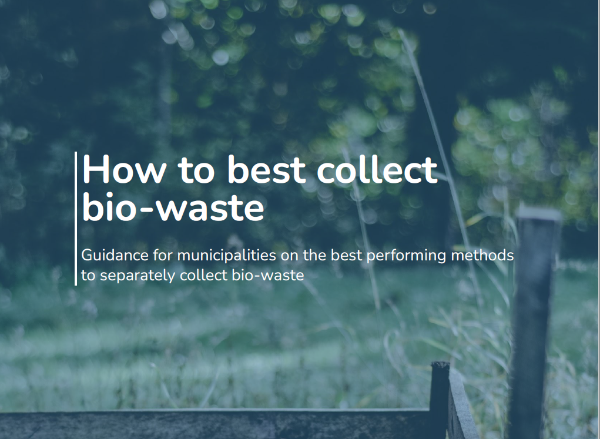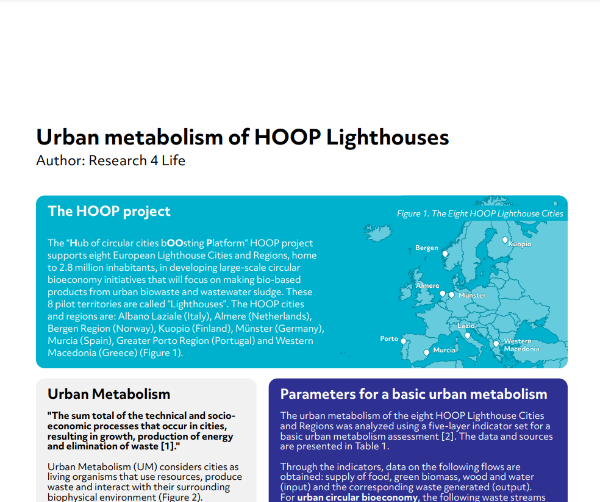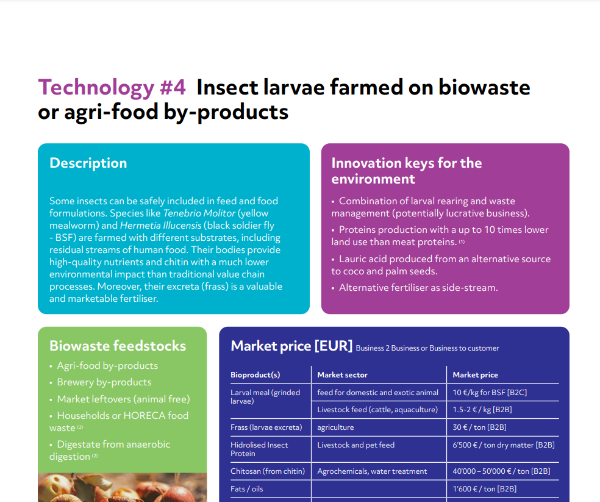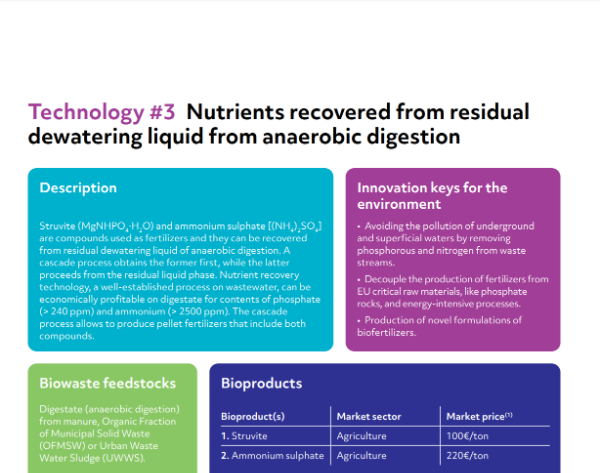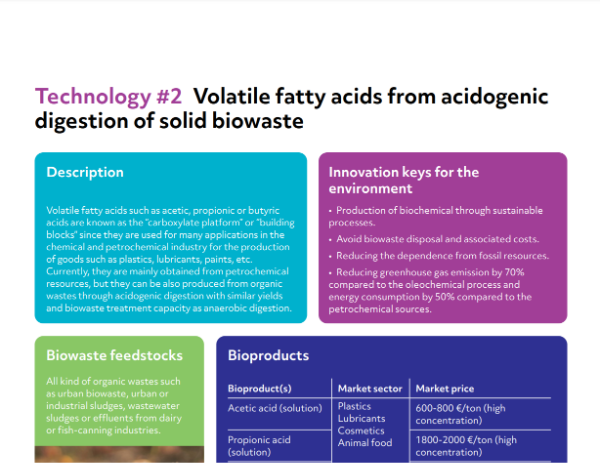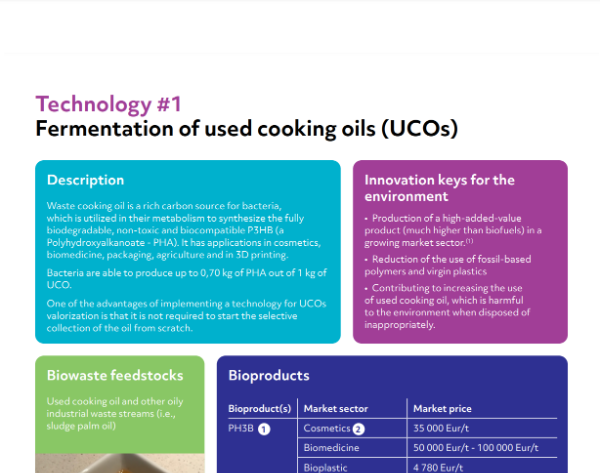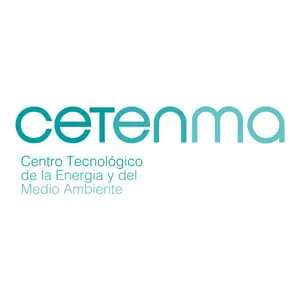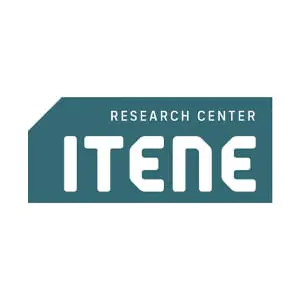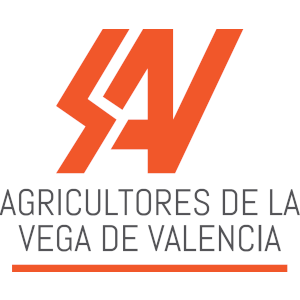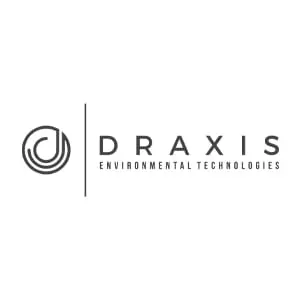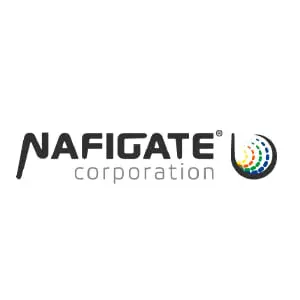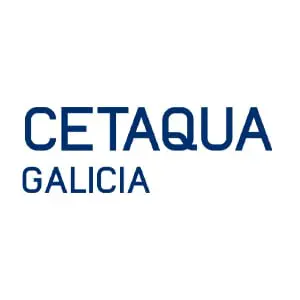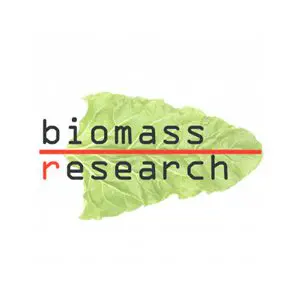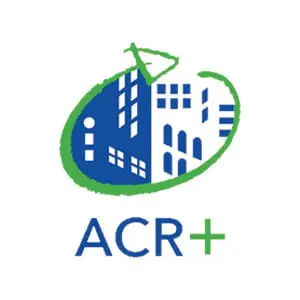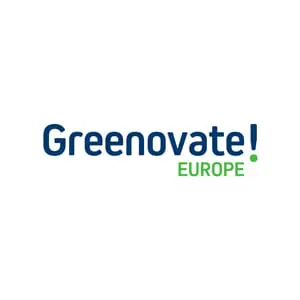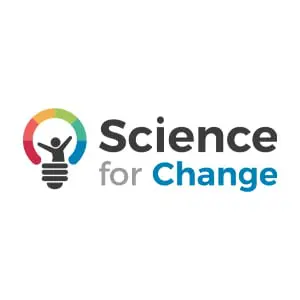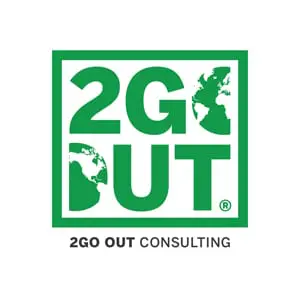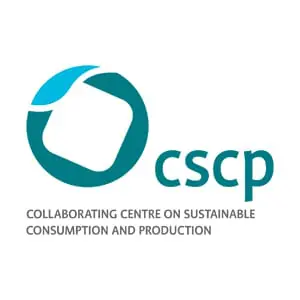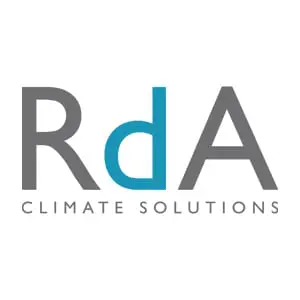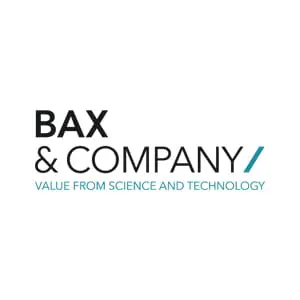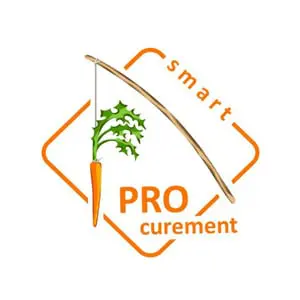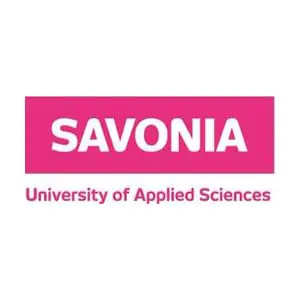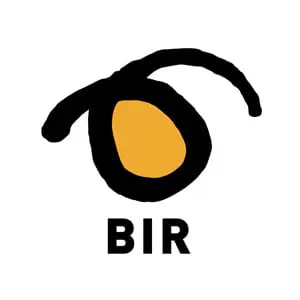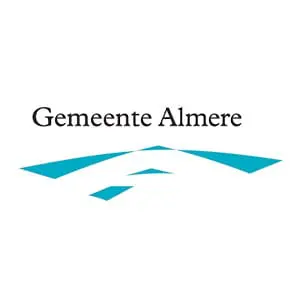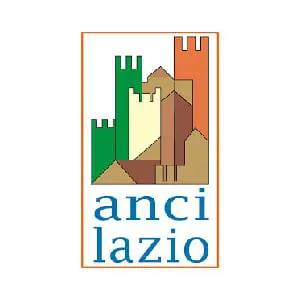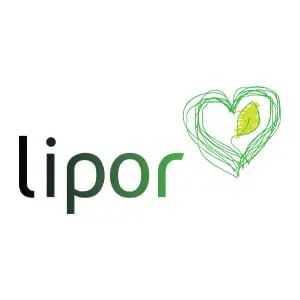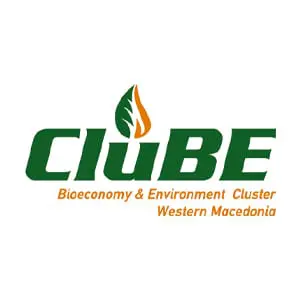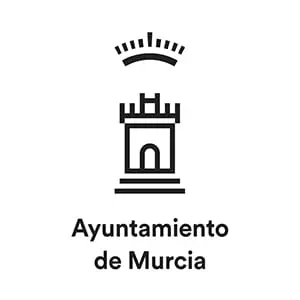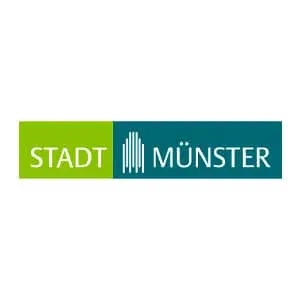Developing urban circular bioeconomy investment projects: Tools and resources for cities and regions
There is a growing demand for circular bioeconomy solutions that can mitigate the emissions and consumption of virgin raw materials. This manual presents tools and resources to help develop urban circular bioeconomy investment projects
Circular business models, Financing, Investment, Pilot projects
Download pdf
Collection and valorisation of urban biowaste: Tools and resources for cities and regions
Biowaste (i.e. food and garden waste) is a key waste stream in the transition towards a circular economy. This manual provides tools and resources for cities and regions looking to better collect and valorise biowaste.
Circular strategies, Collection, Households, Incentives, OFMSW, Pilot projects, Pretreatment, Sorting, Valorisation technologies, Wastewater
Download pdf
Engaging stakeholders for the urban bioeconomy: Tools and resources for cities and regions
This first Virtual Academy handbook provides an introduction to the topic of Stakeholder Engagement and presents the tools and resources available to cities and regions on the topic
Behaviour change, Citizen awareness, Citizen science, Households, Stakeholder engagement
Download pdf
Evaluating to improve bio-circularity performance: Tools and resources for cities and regions
This manual introduces the reader to HOOP tools and methodologies to help cities understand their situation regarding circular bioeconomy.
Circular strategies, Legislation, Urban metabolism
Download pdf
NATIONALE ACTIEHANDLEIDINGEN VOOR LOKALE TOEPASSING EN DUPLICEERBAARHEID
Leerpunten en inzichten uit Almere, Nederland
Circular strategies
Download pdf
ΕΓΧΕΙΡΙΔΙΟ ΓΙΑ ΤΟΠΙΚΉ ΥΙΟΘΕΤΉΣΉ ΚΑΙ
National action manuals for local uptake and replicability Greece
Circular strategies
Download pdf
KANSALLISET TOIMINTAKÄSIKIRJAT PAIKALLISTA SOVELTAMISTA JA MONISTETTAVUUTTA VARTEN
Oppia ja näkemyksiä Kupiosta, Suomesta
Circular strategies
Download pdf
MANUALE D’AZIONE PER L’ADOZIONE A LIVELLO LOCALE E REPLICABILITÀ
Apprendimento e percezione di Albano Laziale, Italia
Circular strategies
Download pdf
NASJONALE HANDLINGSHÅNDBOK FOR LOKAL ANVENDELSE OG REPLIKERBARHET
Erfaringer og innsikter fra Bergen, Norge
Circular strategies
Download pdf
MANUAIS DE AÇÃO NACIONAIS PARA ADOÇÃO E REPRODUÇÃO A NÍVEL LOCAL
Aprendizagens e percepções do Grande Porto, Portugal
Circular strategies
Download pdf
MANUAL DE ACCIÓN PARA LA IMPLEMENTACIÓN LOCAL Y REPLICABILIDAD
Aprendizaje y percepción en Murcia, España
Circular strategies
Download pdf
AKTIONSHANDBUCH FÜR DIE LOKALE UMSETZUNG UND REPLIZIERBARKEIT
Erkenntnisse und Einsichten aus Münster, Deutschland
Circular strategies
Download pdf
The HOOP Tales
The document explains the biocircular journey of 8 lighthouse cities and regions through the Project Development Assistance (PDA) provided by HOOP.
Circular business models, Circular strategies, Valorisation technologies
Download pdf
Closing the HOOP: A legacy of circular innovation
After four-and-a-half years of successful implementation, the pioneering HOOP project comes to an end having harvested successes, lessons learnt, and valuable results highlighted in this report.
Download pdf
Report on the HOOP Cities Conference
The document presents the results of the HOOP Cities and Policy Conference held on 4-5 June 2024 in Brussels. The conference presented the main results achieved by the HOOP Lighthouses and constituted an occasion to gather key dialogue about regulatory, economics and policy topics.
Circular strategies, Valorisation technologies
Download pdf
HOOP economic impact in the Lighthouse Cities and Regions
The report assess the economic impact of the HOOP project by its end in March 2025 on the eight local economies. The economic impact was assessed through a set of 15 monetised KPIs.
Circular business models, Incentives
Download pdf
Open market consultations report
This paper focuses on open market consultations conducted under the HOOP project, which illustrate distinct but complementary models of pre-procurement engagement.
Innovation procurement
Download pdf
Roadmap 2030 per lighthouse city
The document analyses the lighthouse cities progress and describes both upcoming milestones as well as concrete actions to get there. Thus, the roadmaps are formed on a case-by-case basis allowing readers to understand how the HOOP journey will continue.
Circular strategies, Valorisation technologies
Download pdf
Contribution of HOOP to the circular economy strategies of the cities and regions
The document provides a comprehensive overview of the HOOP project’s achievements, the lessons learned, and the broader impact of HOOP on the circular bioeconomy landscape in Europe. It outlines the key components, the HOOP PDAs, the Hub, the Network, the tools and its impact.
Circular strategies
Download pdf
D8.8: Report on the one-on-one capacity building
This report outlines the key activities and outcomes of the one-on-one capacity-building efforts implemented within the HOOP Network of Cities and Regions.
Stakeholder engagement
Download pdf
Tools for supporting future investments decisions in urban bio-based circular projects
This documents indentify and assess the most important existing tools for supporting future investments decisions in Urban Circular Bioeconomy (UCBE) pro- jects. Guidelines for their use are included in the deliverable.
Circular business models, Circular strategies, Valorisation technologies
Download pdf
Report summarising the results of the different National Replication Workshops
The National Replication Workshops aimed to promote the replication of the HOOP project’s outcomes and of their achievements. The document shows challenges for replication beyond well-established practices.
Circular strategies
Download pdf
HOOP guidelines for local and regional authorities
This guideline shows how to identify, design, and implement innovative valorisation routes for urban biowaste and wastewater sludge. It summarises key recommendations, as well as relevant resources and tools that can be used to produce high-quality biowaste-based products and materials.
Circular strategies
Download pdf
National action manuals for local uptake and replicability
This guide shows the process of engaging stakeholders, understand their motivations and bring them together to mobilise for change. The guide also introduces how to do a baseline assessment of the urban circular bioeconomy to promote the conversion of biowaste into high value-added products.
Circular strategies, Stakeholder engagement
Download pdf
LIFE BIOBEST Country Factsheets on the analysis of communication and engagement practices
The primary objective of these factsheets is to highlight the significance of behavioural factors in enhancing engagement in effective bio-waste management models.
Behaviour change, Citizen awareness, Citizen science, Consumer acceptance, Households, Stakeholder engagement
Download pdf
LIFE BIOBEST Guideline on governance and economic incentives
This guideline provides a descriptive survey of the governmental elements and economic instruments that can be leveraged to improve bio-waste management schemes.
Collection, Financing, Households, Incentives, Investment, Legislation, OFMSW
Download pdf
LIFE BIOBEST Guideline to promote quality compost and digestate
The guideline focusses on the material recycling of bio-waste, aiming at supporting the set-up of processes for the production of high-quality compost and digestate and introduces the current EU framework and the ECN quality assurance scheme.
Collection, OFMSW, Valorisation technologies
Download pdf
LIFE BIOBEST Guideline on the separate collection of bio-waste
This guideline aims at summarising the key aspects that have to be considered when implementing a separate collection scheme for bio-waste and, in particular, for kitchen waste.
Collection, Households, OFMSW
Download pdf
LIFE BIOBEST Best Practice cases on bio-waste collection
A set of best practices cases from different EU Member States and for a range of regional, urban or rural settlements is presented in this document.
Collection, Households, OFMSW, Sorting
Download pdf
Due Diligence Standard Procedure for Urban Circular Bioeconomy Projects
Using this Guidance, Project Promoters are de-risking and increasing the bankability of their projects. Cities and entrepreneurs are better prepared to prevent and mitigate some risks, if they want to keep having green funding and financing supports.
Circular strategies, Financing, Investment, Legislation
Download pdf
Urban Circular Bioeconomy Webinar Series 2 | Engaging Stakeholders for the Urban Bioeconomy
Discover strategies to engage stakeholders and involve citizens in decision-making for the urban bioeconomy. Featuring speakers Felix Schumacher from CSCP and Giorgio Barbato from Science for Change.
Circular strategies, Citizen awareness, Consumer acceptance, Stakeholder engagement
See Video
Urban Circular Bioeconomy Webinar Series 2| Developing Urban Circular Bioeconomy Investment Projects
Discover how to overcome barriers and empower financial investments in circular bioeconomy solutions. Learn from the experiences of Miguel Angel Suarez Valdes from CETENMA and Jorge Rodrigues de Almeida, from RdA Climate Solutions in providing Project Development Assistance to 8 cities and regions.
Circular strategies, Financing, Investment
See Video
Urban Circular Bioeconomy Webinar Series 2 | Evaluating and Improving Circular Bioeconomy
Tune in for the second episode, discover how your city can enhance its circular bioeconomy performance. Marine Viale, from Bax and Company, and Hans Langeveld from Biomass Research B.V. present tools to assess progress and identify improvement areas.
Circular strategies, Urban metabolism
See Video
Urban Circular Bioeconomy Webinar Series 2 | Collection and Valorisation of Urban Biowaste
Learn about cutting-edge technologies for bio-product production from biowaste and wastewater, from municipal representatives implementing innovative technologies in their territories: Elisa Gambuzzi, CETENMA, and Dr. Christoph Baumann, awm Abfallwirtschaftsbetriebe Münster.
Circular strategies, Collection, Urban metabolism, Valorisation technologies, Wastewater
See Video
The EIB Circular Economy Guide
The guide presents how the EIB supports the circular economy through financing, advisory and awareness raising.
Financing, Incentives, Investment
Download pdf
Improving access to finance for circular economy projects
To improve the conditions for financing circular economy projects, the European Commission Expert Group on Circular Economy Financing analysed barriers and identified the main areas where incentives need to be provided.
Financing, Investment
Download pdf
Understanding Open Market Consultation
Open Market Consultation is an important step in the procurement of innovation. This online webinar is tailored specifically for public procurers interested in gaining a comprehensive understanding of what an Open Market Consultation entails.
Financing, Innovation procurement, Investment
See Video
Project Development Assistance Webinar | HOOP
In this webinar, HOOP partners share their methodologies, experiences, encountered barriers and learnings on the Project Development Assistance (PDA) for building the technical, economic and legal expertise needed for project development and the launch of concrete investments.
Financing, Valorisation technologies
See Video
Outcome reports of the codesigned Citizen Science Interventions
A Citizen Science program utilizing the gamified App HOOP Trainers was achieved to collaboratively identify and advance more efficient sorting, collection, and recycling systems, with a particular emphasis on the Organic Fraction of Municipal Solid Waste (OFMSW).
Citizen science
Download pdf
HOOP Trainers Report: Western Macedonia Region outcomes
Study Results of a Citizen Science program applied in the region of Western Macedonia to gain a deeper understanding of the citizens’ perspectives on biowaste separation, their acceptance of products derived from it, and their proposals for building a more circular region.
Behaviour change, Citizen awareness, Citizen science
Download pdf
HOOP Trainers Report: outcomes obtained in Murcia
Study Results of a Citizen Science program applied in Murcia to gain a deeper understanding of the citizens’ perspectives on biowaste separation, their acceptance of products derived from it, and their proposals for building a more circular city.
Behaviour change, Citizen awareness, Citizen science
Download pdf
HOOP Trainers Report: Region of Lazio outcomes
Study Results of a Citizen Science program applied in the Region of Lazio to gain a deeper understanding of the citizens’ perspectives on biowaste separation, their acceptance of products derived from it, and their proposals for building a more circular region.
Behaviour change, Circular strategies, Citizen awareness
Download pdf
Report on the education and awareness raising & acceptance activities
The deliverable reports on pilot actions carried out to optimize separate waste collection, foster behavior change, and cultivate acceptance of biowaste derived products. A selection of pilot actions were designed to bridge the gap between current practices and best methodologies.
Citizen science, Stakeholder engagement
Download pdf
Engagement activities implemented through the Biowaste Clubs in the Lighthouse Cities and Regions
Throughout the first three years of the HOOP project, BCMs were attended by 790 stakeholders across all eight LHs. One trend that emerges when looking at the engagement activities in the eight Lighthouses together is the focus on citizens as a key target group for stakeholder engagement.
Stakeholder engagement
Download pdf
Circular Evaluation Framework Guidance Report
The document describes a standardized assessment, questionnaire, and ranking of six levels tool designed to gauge the maturity level of projects based on several criteria. The goal is to enhance their maturity and attractiveness for securing green financing and funding for implementation.
Circular business models, Financing
Download pdf
HOOP Trainers Report: outcomes obtained in Münster
Study Results of a Citizen Science program applied in Münster to gain a deeper understanding of the citizens’ perspectives on biowaste separation, their acceptance of products derived from it, and their proposals for building a more circular region.
Behaviour change, Citizen awareness, Citizen science
Download pdf
Advancing the circular bioeconomy in the Region of Lazio through co-creation
Results of two co-creation Biowaste Club Meetings in Lazio to co-produce improvement proposals through the analysis of the HOOP Trainers’ challenges.
Behaviour change, Citizen awareness, Citizen science, Stakeholder engagement
Download pdf
Advancing the circular bioeconomy in Murcia through co-creation
Results of two co-creation Biowaste Club Meetings in Murcia to co-produce improvement proposals through the analysis of the HOOP Trainers’ challenges.
Behaviour change, Citizen awareness, Citizen science, Stakeholder engagement
Download pdf
Advancing the circular bioeconomy in Western Macedonia
Results of two co-creation Biowaste Club Meetings in Western Macedonia to co-produce improvement proposals through the analysis of the HOOP Trainers’ challenges.
Behaviour change, Citizen awareness, Citizen science, Stakeholder engagement
Download pdf
HOOP financial tools to provide technical assistance for urban circular bioeconomy projects
This paper presents the HOOP financial tools that have been developed to support cities and regions to develop urban bioeconomy projects
Circular business models, Financing, Innovation procurement, Investment
Download pdf
Circular Business Models - Existing and emerging forms of value retention and creation
This Whitepaper presents a series of existing and emerging circular business models (CBMs), divided into three groups that together form a classification. Better design and organisation of a CBM contributes to the transformation and transition towards a sustainable and circular economy.
Circular business models, Circular strategies
Download pdf
Incentives to boost the Circular Economy - A guide for public authorities
This guidance document commissioned by DG RTD aims at supporting public authorities in identifying the most suited incentive or combination of incentives to speed up the transition towards a circular economy at EU, National, Regional or Local level.
Circular business models, Circular strategies, Consumer acceptance, Financing, Incentives, Innovation procurement, Investment
Download pdf
Circular Economy policy innovation and good practice in Member States
The European Commission requested the EEA to produce EU27 country profiles on circular economy policies at a national level and best practices on policy innovation. This report provides an overview of the main findings of the 27 circular economy country profiles.
Circular business models, Circular strategies
Download pdf
Completing the picture - How the circular economy tackles climate change
This is a republication of a paper first published in 2019 with the same name. It is reprinted now to make the case at COP26 that the circular economy is a crucial element of the global response to climate change.
Circular business models, Circular strategies
Download pdf
Circular Indicators for Governments - Accelerating action in the circular economy
PACE is a global community of leaders working together to accelerate the transition to a circular economy. In this paper a series of improvement areas for immediate action on circular economy are presented.
Circular business models, Circular strategies
Download pdf
Circular Cities Declaration Report 2022
The Circular Cities Declaration has been set up to support cities in their transition from a linear to a circular economy. The Report 2022 analyses the first submissions by 40 cities signatories on their circular activities (2021-2022) including key activities, interventions and challenges.
Behaviour change, Circular business models, Circular strategies, Citizen awareness, Citizen science, Consumer acceptance, Stakeholder engagement
Download pdf
Developing Circular Economy Strategies in Europe - Best practices
This working paper developed by The Joint Assistance to Support Projects in European Regions (JASPERS) builds on the 70+ circular economy strategies developed in Europe as of May 2021. The strategies were analysed in terms of inception, development, and implementation and monitoring:
Circular business models, Circular strategies
Download pdf
Food waste and social acceptance of a circular bioeconomy: the role of stakeholders
To be socially accepted widely, circular bioeconomy needs to rely on residual bio-based feedstock and waste. First successful experiences have shown that the involvement of different stakeholders is a key enabler of the process.
Behaviour change, Circular business models, Circular strategies, Citizen awareness, Consumer acceptance, Stakeholder engagement
Download pdf
The Circularity Gap Report 2022
The 2022 edition of the Circularity Gap Report provides high level insights into the globe’s material flows and key levers for transitioning to circularity. It also supports decision-makers with clear metrics, global data and a measurement of the circular economy to guide their action.
Circular business models, Circular strategies
Download pdf
Bacillus thuringiensis Production Through Fermentation Using OFMSW Enzymatic Hydrolysate
This paper aims to explore an alternative pathway to valorize OFMSW. It is based on enzymatic hydrolysis to obtain a sugar-rich fraction with the potential for liquid fermentative processes and a partially hydrolyzed solid that is evaluated as a substrate for solid-state fermentation.
OFMSW, Valorisation technologies
Download pdf
SCALIBUR Project - Best practices for biowaste management
The SCALIBUR Project collected best practices on different topic related to biowaste management: among them, collection, transport, and social awareness.
Circular strategies, Citizen awareness, Collection, Consumer acceptance, Stakeholder engagement, Valorisation technologies
Download pdf
SCALIBUR Project - The Biowaste Hub
The Biowaste Hub – a new social network and professional platform for digitally connecting all the players in the biowaste management value chain, such as: collectors, municipalities, energy providers, sorters, research centres, private companies.
Circular business models, Circular strategies, Stakeholder engagement, Valorisation technologies
Download pdf
Key factors for the successful implementation of urban biowaste selective collection schemes
This agreement provides guidance for the implementation of biowaste selective collection schemes, and paves the way to increase citizen engagement, as this is crucial for the successful implementation of urban biowaste selective collection schemes.
Citizen awareness, Collection, Stakeholder engagement, Valorisation technologies
Download pdf
VALUEWASTE Project - EU Policy on biowaste management: a review
This report provides an overview on the current European biowaste policy framework and related management practices: separated collection efficiency, disposal and valorisation methods, and recycled amounts.
Collection, Valorisation technologies
Download pdf
HOOP Project - Novel Circular Business Models applied in the value chain of bio-waste valorisation
This report focuses on the identification of CBMs for bio-waste valorisation and the development of a CBM typology, which will be able to incorporate also other business cases of bio-waste valorisation in the future.
Circular business models, Valorisation technologies
Download pdf
Fortifying Social Acceptance for Circular Economy Business Models on Biowaste Products
This study by the WASTEWATER Project, engaging citizens, consumers, producers, and policy makers, provides insights into what is important for the social acceptance of new protein sources for food, feed, and recycled fertilisers from bio-waste in the Murcia and Kalundborg city regions.
Behaviour change, Circular business models, Circular strategies, Citizen awareness, Consumer acceptance, Pilot projects, Valorisation technologies
Download pdf
Unlocking New Value from Urban Biowaste: LCA of the VALUEWASTE Biobased Products
VALUEWASTE offers a sustainable solution to transform biowaste into added-value bioproducts. This study focused on the environmental impacts linked to obtaining these bioproducts, performing a LCA and using the Environmental Footprint methodology.
Circular strategies, Valorisation technologies
Download pdf
WaysTUP Report on barriers for urban biowaste valorisation for biobased products
This reports on the technological, the logistical, the regulatory and the cultural barriers related to urban biowaste valorisation for biobased products.
Behaviour change, Circular business models, Circular strategies, Valorisation technologies
Download pdf
VALUEWASTE project’s first insights on new business models in circular economy
This report describes the circular economy Business model creation processes for the three value chains of the VALUEWASTE project.
Behaviour change, Circular business models, Circular strategies, Financing
Download pdf
HOOP Project stakeholder engagement & citizen awareness
This presentation showcases the stakeholder engagement and citizen awareness strategies and actions put in place by the HOOP Project on biowaste value chain.
Citizen awareness, Collection, Consumer acceptance, Sorting, Stakeholder engagement
Download pdf
SCALIBUR Project Biowaste collection strategies
This presentation illustrates the biowaste collection strategies implemented in the SCALIBUR pilot cities Albano Laziale (IT), Lund (SE), Madrid (ES), Kozani (GR) and outlines challenges, solutions, and best practices.
Collection, Pilot projects, Sorting
Download pdf
ULTIMATE Project Playbook on Stakeholder Engagement
This playbook comes provides a citizen participation playbook with instructions, protocols and guidelines for designing and implementing the immersive experience to create economic value and increase sustainability by valorising resources within the water cycle. .
Citizen awareness, Stakeholder engagement, Wastewater
Download pdf
WaysTUP Evaluation methodology for measuring change in the collection of urban biowaste
In this report, the evaluation methodology measuring the change associated with the behaviour change intervention (consisting of the implementation of the toolkit for behaviour change in three pilot cities, Valencia, Athens and Barcelona) is described.
Behaviour change, Citizen awareness, Consumer acceptance, Pilot projects, Stakeholder engagement
Download pdf
WaysTUP Project Local Engagement Plans for change in the collection of local biowaste
A behavioural change approach for the collection of urban biowaste and usage of biowaste derived products with citizens & communities.
Behaviour change, Citizen awareness, Consumer acceptance, Stakeholder engagement
Download pdf
WaysTUP! Project Toolkit: intervention for change in the collection of urban biowaste
This report by the WaysTUP project focuses on defining, designing and implementing a behavioural change approach for the collection of urban biowaste and usage of bio-based derived products with citizens and communities.
Behaviour change, Citizen awareness, Consumer acceptance, Pilot projects, Stakeholder engagement
Download pdf
Water in the Circular Economy policy development
Based on the outcomes of Water Projects Europe, the European Commission published the ‘Water in the Circular Economy policy development’ Report presenting how Horizon 2020–projects can contribute to EU legislation on the topic.
Circular strategies, Pilot projects, Wastewater
Download pdf
Policy Briefs to foster water reuse in Europe
This document, produced by the SUWANU project, present four critical domains for a successful implementation of reused water in agriculture: governance, public, financing, risk management. It aims at supporting the adoption of water reuse in an environmentally sustainable farming practice.
Financing, Wastewater
Download pdf
Zero Waste Europe_How to best collect bio-waste
Guidance for municipalities on the best-performing methods to separately collect bio-waste.
Collection, Households, OFMSW, Stakeholder engagement
Download pdf
Urban metabolism of HOOP Lighthouses
Urban Metabolism analysis is an analytical instrument to quantify flows of food, water and generated biowaste. In the eight HOOP cities and regions about 60 % of the biowaste is treated by AD and or composting. A high proportion of biowaste still ends up in the mixed municipal waste.
Urban metabolism
Download pdf
HOOP project_Novel Circular Business Models applied in the value chain of bio-waste valorisation
This report focuses on the identification of Circular Business Models for bio-waste valorisation.
Circular business models, Circular strategies
Download pdf
HOOP project_ Investment Package Manual for European Cities and Regions (Volume III)
The Volume III of the Investment Package Manual presents a selection and inventory of funding and financing schemes, programmes, instruments and tools for investment projects on circular bioeconomy and bioenergy at National and Regional levels.
Circular business models, Financing, Investment, OFMSW, Wastewater
Download pdf
HOOP project_Investment Package Manual for European Cities and Regions (Volume II)
The Volume II of the Investment Package Manual guides the reader through the selection and inventory of funding and financing schemes, programmes, instruments and tools for investment projects on circular bioeconomy and bioenergy at European level.
Financing, Incentives, Legislation, Innovation procurement
Download pdf
HOOP project_Investment Package Manual for European Cities and Regions (Volume I)
The Investment Package Manual Volume I presents the description of the EU Taxonomy concepts, methodology, objectives, technical screening criteria and DNSH (“do no significant harm”) applied to economic activities linked to the circular bioeconomy.
Financing, Investment, Legislation
Download pdf
HOOP project_Webinar New business models
Prevailing business models are overwhelmingly linear and do not often consider the benefits of circularity, which can be hard to quantify. This webinar shares existing and successful innovative circular economy business models for urban circular bioeconomy.
Circular business models, Circular strategies, Financing, Investment
See Video
HOOP project_Webinar Selective Collection of Urban Biowaste
Soon to be a requirement across the EU, separate collection of urban biowaste is a prerequisite for the implementation of urban bioeconomy. In this webinar technical experts and municipal representatives discuss common pitfalls and good practices for collecting a high quality organic fraction.
Collection, Sorting
See Video
HOOP project_Webinar Selective Collection of Urban Biowaste
Soon to be a requirement across the EU, separate collection of urban biowaste is a prerequisite for the implementation of urban bioeconomy. In this webinar technical experts and municipal representatives discuss common pitfalls and good practices for collecting a high quality organic fraction.
Collection, Sorting, Valorisation technologies
See Video
HOOP project_Webinar Safety and acceptance of biobased products
Creating new products from (bio)waste naturally raises some questions related to safety. And are consumers ready to embrace products made from waste? These are the topics of this webinar co-organised by the projects WaysTUP!, SCALIBUR, HOOP and ValueWaste.
Behaviour change, Citizen awareness, Consumer acceptance, Stakeholder engagement
See Video
HOOP project_Insect larvae farmed on biowaste or agri-food by-products
Some insects can be safely included in feed and food formulations. Species like Tenebrio Molitor and Hermetia Illucensis are farmed with different substrates. Their bodies provide high-quality nutrients and chitin with a much lower environmental impact than traditional value chain processes.
Valorisation technologies
Download pdf
HOOP project_Nutrients recovered from residual dewatering liquid from anaerobic digestion
Struvite (MgNHPO4·H2O) and ammonium sulphate [(NH4)2SO4] are compounds used as fertilizers and they can be recovered from residual dewatering liquid of anaerobic digestion.
OFMSW, Valorisation technologies, Wastewater
Download pdf
HOOP project_Volatile fatty acids from acidogenic digestion of solid biowaste
Volatile fatty acids such as acetic, propionic or butyric acids are used for many applications in the chemical and petrochemical industry. Currently, they are mainly obtained from petrochemical resources, but they can be also produced from organic wastes through acidogenic digestion.
Valorisation technologies
Download pdf
HOOP project_Fermentation of used cooking oils (UCOs)
Waste cooking oil is a rich carbon source for bacteria, which is utilized in their metabolism to synthesize the fully biodegradable, non-toxic and biocompatible P3HB (a Polyhydroxyalkanoate - PHA). It has applications in cosmetics, biomedicine, packaging, agriculture and in 3D printing.
Collection, Valorisation technologies
Download pdf
HOOP project_Webinar Technologies for urban biowaste and wastewater valorisation
Many innovative processes are currently under development to valorise the Organic Fraction of Municipal Waste (OFMSW) and Urban Wastewater Sludge (UWWS) into added-value products. This webinar highlights some of the most promising technologies currently emerging from EU-funded research projects.
Valorisation technologies
See Video
HOOP project_Guidance for the organisation of National Replication Workshops
This report is one of the outputs of the HOOP project and it aims at guiding the Lighthouses cities in the organisation of National Replication Workshops. The guide can be adapted and replicated in every context and sector.
Stakeholder engagement
Download pdf
HOOP project_What is a Biowaste Club?
Biowaste Clubs are dialogue platforms that bring together stakeholders involved in the biowaste valuechain. They exchange and together develop a shared vision for how their city can become more circular.
Behaviour change, Citizen awareness, Stakeholder engagement
See Video
HOOP project_Webinar stakeholder engagement & citizen awareness
Updating an entire (bio)waste value chain requires the buy-in and long-term commitment of all stakeholders involved. This webinar focuses on strategies for engaging these stakeholders, changing mindsets and behaviour, and establishing local leadership.
Behaviour change, Stakeholder engagement
See Video
URBIOFIN project_From Urban Waste to Bioproducts
The URBIOFIN project offers a new model for Organic Municipal Solid Waste management, based on the Urban Biorefinery concept. This factsheets briefly outlines and business benefits of such a model.
Circular business models, OFMSW, Valorisation technologies
Download pdf
Zero Waste Europe_Scenario 3: Going beyond just recycling to total tackle waste generation
This publication is part of a series of scenarios written by Zero Waste Europe to give guidance to municipalities willing to adopt a local zero waste strategy. This third and last report focuses on cities with high separate collection rate, between 50% and 70%.
Circular business models, Circular strategies, Collection, Sorting
Download pdf
Zero Waste Europe_Scenario 2: Stepping-up the existing system to go towards zero waste
This publication is part of a series of scenarios written by Zero Waste Europe to give guidance to municipalities willing to adopt a local zero waste strategy. This second report focuses on cities with a separate collection rate between 30% and 50%.
Circular business models, Circular strategies, Collection, Sorting
Download pdf
Zero Waste Europe_Scenario 1: Starting from scratch to quickly improve waste management
This publication is part of a series of scenarios written by Zero Waste Europe to give guidance to municipalities willing to adopt a local zero waste strategy. This first report focuses on cities with a collection of biowaste between 0 and 20%.
Circular business models, Circular strategies, Collection, Sorting
Download pdf
WBCSD_Business guide to circular water management: spotlight on reduce, reuse and recycle
This report aims to help companies in developing strategies to respond to challenges of water availability by implementing circular water management practices.
Circular business models, Circular strategies, Wastewater
Download pdf
WaysTUP! project_Business Models Analysis
This report, published by the WaysTUP! project, gathers and analyses relevant information about circular business models and their importance.
Circular business models
Download pdf
WaysTUP! project_Market Outlook Report
This report is a direct outcome of Task 6.1 Analysis of market outlook. Overall, the scope of the market outlook is focused on the market drivers and barriers to entry for technologies and end-products stemming from the Project’s Pilots.
Circular business models, Circular strategies, Legislation, Pilot projects
Download pdf
ACR+_The governance of circular bioeconomy: Practices and lessons learnt from European regions
In collaboration with the French Pays de la Loire region, ACR+ set up a working group on circular bioeconomy with a particular focus on governance. The objective is to support public authorities in the development of local or regional roadmaps on circular bioeconomy.
Circular strategies, Incentives, Investment, Innovation procurement, Stakeholder engagement
Download pdf
SCALIBUR project_How Lund became a circular economy pioneer
Back in the 1990’s, 60% of waste went to landfill in the Swedish city of Lund. Today it’s less than 2%, and the region is a pioneer of the burgeoning circular economy. How did they do it?
Behaviour change, Circular strategies, Citizen awareness, Collection, Sorting
See Video
ICLEI_The Power of the Public Plate
This document provides a collection of actionable recommendations for procurers and policy makers towards procuring food with a value chain perspective.
Circular strategies, Innovation procurement
Download pdf
City Loops project_Sector-wide circularity assessment. Biomass sector
This report provides contextual information on the four different CityLoops cities (Apeldoorn, Mikkeli, Porto and Seville) and their biomass sectors.
Urban metabolism
Download pdf
City Loops project_Seville (Spain): Sector-wide circularity assessment for the biomass sector
The City Loops project developed a Sector-Wide Circularity Assessment method to assess the circularity level of biomass in cities. This report presents the results in the city of Seville (Spain).
Urban metabolism
Download pdf
City Loops project_Urban Circularity Assessment
The Urban Circularity Assessment is an urban, economy-wide material flow and stock accounting method, which paired with indicators, will enable the assessment of material circularity of a municipality or city.
Urban metabolism
Download pdf
City Loops_Apeldoorn (The Netherlands): Sector-wide circularity assessment for the biomass sector
The City Loops project developed a Sector-Wide Circularity Assessment method to assess the circularity level of biomass in cities. This report presents the results in the city of Apeldoorn (The Netherlands).
Urban metabolism
Download pdf
City Loops_Porto (Portugal): Sector-wide circularity assessment for the biomass sector
The City Loops project developed a Sector-Wide Circularity Assessment method to assess the circularity level of biomass in cities. This report presents the results in the city of Porto (Portugal).
Urban metabolism
Download pdf
City Loops_Mikkeli (Finland): Sector-wide circularity assessment for the biomass sector
The City Loops project developed a Sector-Wide Circularity Assessment method to assess the circularity level of biomass in cities. This report presents the results in the city of Mikkeli (Finland).
Urban metabolism
Download pdf
City Loops_Apeldoorn (The Netherlands): Optimised Implementation Plan – Biowaste
Apeldoorn collects over 56,000 tonnes of household waste yearly, around 38% of which is bio-waste. Within CityLoops, the municipality aims to further investigate how to process and/or collect biomass and introduce new processing methods and business models.
Circular business models, Collection, Pilot projects, Sorting, Urban metabolism, Valorisation technologies
Download pdf
City Loops_Seville (Spain): Optimised Implementation Plan – Biowaste
Seville aims to divert as much waste from landfill as possible and instead use the bio-waste fractions of municipal solid waste for higher value purposes. The diagnosis and characterisation of the current situation of the flow of organic matter is the starting point.
Collection, OFMSW, Pilot projects, Sorting, Urban metabolism, Valorisation technologies
Download pdf
City Loops project_Mikkeli (Finland): Optimised Implementation Plan – Biowaste
Only 38% of the 6,900 tonnes of bio-waste Mikkeli’s citizens produce yearly is recycled, mainly as compost. Consequently, Mikkeli’s aim within CityLoops is to improve the recovery of nutrients from bio-waste streams into recycled products.
Collection, Pilot projects, Sorting, Urban metabolism, Valorisation technologies
Download pdf
City Loops project_Smart collection system tool
Seeking to improve its waste collection practices to separate bio-waste more effectively, Porto implements a Smart Collection System tool based on a mathematical model that will integrate data from the new installed set of smart sensor containers with the transportation trucks.
Collection
Download pdf
City Loops project_OMSW flow optimisation tool
Software tool for municipalities to model possible scenarios for separate collection of biowaste considering the data on biowaste material flows and quality collected.
Collection
Download pdf
Metabolic_Exploring circular solutions in the waste system
This report, published by Metabolic, provides a waste analysis of the Capital Region of Denmark.
Circular strategies, Collection, Sorting, Urban metabolism, Valorisation technologies, Wastewater
Download pdf
SCALIBUR project_Sensors for biowaste degradation monitoring
How to monitor the level of degradation of biowaste, in order to prioritise its collection and provide biorefineries with higher-quality feedstock?
Valorisation technologies
Download pdf
SCALIBUR project_Optimised insect fractionation for food and feed applications
How to retrieve the most suitable insect protein for food and feed applications?
Valorisation technologies
Download pdf
SCALIBUR project_Optimised enzyme cocktail to valorise OFMSW
How to optimise the extraction of sugars from biowaste, to better valorise this highly valuable waste stream?
OFMSW, Valorisation technologies
Download pdf
SCALIBUR project_Optimised anaerobic digestion process
How to improve the anaerobic digestion process, in order to better valorise sewage sludge?
Valorisation technologies, Wastewater
Download pdf
SCALIBUR project_Novel biopesticide from organic waste
How to create an efficient pesticide that does not harm the environment?
Valorisation technologies
Download pdf
SCALIBUR project_Monitoring system for bio-waste treatment
How to monitor the level of purity of biowaste, in order to provide biorefineries with a satisfaying constant feedstock?
Valorisation technologies
Download pdf
SCALIBUR project_Insect rearing plant
Is there a sustainable way to feed the growing human population that also allows a true valorisation of food waste?
Valorisation technologies
Download pdf
SCALIBUR project_Insect proteins for feed applications
What substitute to traditional protein sources can be used, to ensure farm animals’ feeds are more sustainable?
Valorisation technologies
Download pdf
SCALIBUR project_Extraction of sustainable sugars from organic waste
How can the extraction of sugars from biowaste be optimised, to ensure a broader market uptake of this revalorisation process?
Valorisation technologies
Download pdf
ECN Data Report 2022_Compost and Digestate for a Circular Bioeconomy
Overview of bio-waste collection, treatment and markets across Europe, with a special focus on compost and digestate.
Sorting, Valorisation technologies
Download pdf
SCALIBUR project_Biopolymer (PHA) from sewage sludge & organic residues
As the demand for bioplastic grows, how to produce it in a sustainable way?
Valorisation technologies, Wastewater
Download pdf
SCALIBUR project_Biopesticides from solid state fermentation
After OFMSW is subjected to enzymatic hydrolysis, how can we valorise the solid residues?
Valorisation technologies
Download pdf
SCALIBUR project_Bioelectrochemical conversion of CO2
How to convert the CO2, in order not to release it into the environment?
Valorisation technologies
Download pdf
SCALIBUR project_Bio-based biodegradable plastic from OFMSW
How to produce a bio-plastic as environmentally sustainable as possible?
Valorisation technologies
Download pdf
SCALIBUR project_Best practices for biowaste management
In order to help cities improve their management of biowaste, SCALIBUR partners identified best practices for selective collection, transport, sorting and pre-treatment, and characterisation of the organic fraction of municipal solid waste (OFMSW), HORECA and retail waste and sewage sludge.
Collection, Stakeholder engagement
Download pdf
SCALIBUR project_Algorithm for logistics optimisation
How to optimise the collection of biowaste, to ensure biorefineries have access to a uniform & high-quality feedstock?
Collection
Download pdf
OECD_Realising the Circular Bioeconomy
This OECD report explore the synergies between bioeconomy and circular economy.
Collection, OFMSW, Valorisation technologies
Download pdf
PERCAL project_Conversion routes of the Organic Fraction of Municipal Solid Waste
The PERCAL project, funded by the BBI JU, presents an opportunity to exploit Municipal Solid Waste (MSW) as a feedstock to develop intermediate chemical products at high yield and low impurity level with huge industrial interest.
OFMSW, Valorisation technologies
Download pdf
Biomass for the Circular Economy
This report provides an overview of the types of biomass and biomass availability on the scale of the Netherlands, Europe and the world, and the available technologies for converting biomass into a range of useful products.
Valorisation technologies
Download pdf
Zero Waste Europe_Reducing food waste at the local level
This report, published by Zero Waste Europe together with Slow Food, aims at providing support to local municipalities to help reduce food waste through a holistic approach enabling the transition towards a sustainable food system.
Circular strategies, OFMSW
Download pdf
Zero Waste Europe_The State of Zero Waste Municipalities Report 2021
This report aims to celebrate the stories of Europe’s Zero Waste Cities; to showcase the leaders behind these successes; and to inspire others to follow down the same path.
Circular business models, Circular strategies
Download pdf
Mission Zero Academy_Zero Waste Certified City
Led by the Mission Zero Academy, the Zero Waste Cities Certification is a tool to accelerate and certify your city’s circular economy and zero waste transition.
Circular business models, Citizen awareness
Download pdf
URBACT_Performance in policy-making
Readers will be guided through the process of policy making cycle by addressing evidence-based objectives, choosing the measurement criteria (indicators) and way to apply them to monitor, evaluate and improve sustainable urban development policies.
Download pdf
URBACT_Capacity-Building Framework
The overarching objective of the URBACT Programme is for urban practitioners to increase their knowledge and capacities in relation to integrated approaches to sustainable urban development.
Download pdf
European Commission_Monitoring framework for the circular economy
In 2018, the European Commission published a communication on a monitoring framework for the circular economy. This framework is made of ten indicators grouped into four aspects: (1) production and consumption, (2) waste management, (3) secondary raw materials and (4) competitiveness and innovation.
Legislation
Download pdf
VALUEWASTE project_Report on the preparation of Educational Campaign in Murcia (Spain)
This report details the content of the communication campaign and the activities carried out in the city of Murcia by the Valuewaste project. The focused on citizens, restaurants and food markets to make sure that they perform a proper separation of biowaste.
Behaviour change, Citizen awareness, Households, Sorting, Stakeholder engagement
Download pdf
VALUEWASTE project_Kalundborg-Symbiosis: Successful case and role in ValueWaste
This report describes more than 40 years of experiences in Kalundborg working with industrial symbioses.
Circular business models, Collection, Sorting, Valorisation technologies, Wastewater
Download pdf
Zero Waste Europe_The story of Milan (Italy)
In 2011, the city of Milan (Italy) took the decision to upgrade its waste management strategy by adopting a comprehensive approach to separately collect food waste. Ten years later, the city is one of the world leading examples regarding food waste collection.
Collection, Sorting
Download pdf
Zero Waste Europe_The story of Pontevedra (Spain)
Thanks to decentralised composting the province of Pontevedra went from providing no options for bio-waste to a comprehensive and community-based system.
Collection, Sorting, Valorisation technologies
Download pdf
WaysTUP project_Catalogue of urban biowaste solutions and good practices examples
The aim of this report is to show a catalogue of urban biowaste valorisation solutions and good practices that are taking place in the different European countries.
Collection, Pilot projects, Pretreatment, Sorting, Valorisation technologies, Wastewater
Download pdf
WaysTUP project_Report on urban biowaste composition & physicochemical characteristics
After having established a common laboratory analysis protocol and methodology for executing waste analysis campaigns in deliverable 1.1, this report (deliverable 1.2) aims to report upon urban biowaste composition and physicochemical characteristics based on this common protocol.
Collection, Pilot projects, Sorting
Download pdf
WaysTUP project_Laboratory analysis protocol and methodology for executing WAC
The objective of this report is to outline the development of a representative methodology for the conduction of Waste Analysis Campaigns (WACs) of all different types of urban biowaste that are used as feedstocks for the biobased products within the WaysTUP! project.
Collection, Pretreatment, Sorting
Download pdf
Zero Waste Europe_Community Composting: A Practical Guide for Local Management of Biowaste
This report is a guide for the implementation of community composting.
Collection, Households, Sorting
Download pdf
SCALIBUR project_Stakeholder engagement plan per pilot municipality
The Horizon 2020 SCALIBUR project aims to develop new circular economy approaches to recycle urban biowaste. This report illustrates SCALIBUR’s understanding of and approach to stakeholder engagement.
Behaviour change, Stakeholder engagement
Download pdf
SCALIBUR_National Action Manual for local uptake (Spain)
The purpose of this manual is to guide the user through the process of engaging stakeholders in their cities’ biowaste value chain. It is based on the experience gained by CSCP in Madrid (Spain) in the framework of the SCALIBUR project.
Behaviour change, Stakeholder engagement
Download pdf
SCALIBUR_National Action Manual for local uptake (Italy)
The purpose of this manual is to guide the user through the process of engaging stakeholders in their cities’ biowaste value chain. It is based on the experience gained by CSCP in Albano Laziale (Italy) in the framework of the SCALIBUR project .
Behaviour change, Stakeholder engagement
Download pdf
SCALIBUR_National Action Manual for local uptake (Greece)
The purpose of this manual is to guide the user through the process of engaging stakeholders in their cities’ biowaste value chain. It is based on the experience gained by CSCP in Kozani (Greece) in the framework of the SCALIBUR project.
Behaviour change, Stakeholder engagement
Download pdf
VALUEWASTE project_First insights on social acceptance
The VALUEWASTE project proposes an integrated approach in urban biowaste upcycling for the production of high-value bio-based products. A way objective of VALUEWASTE is to improve the perception of citizens on urban biowaste as a local source of valuable materials.
Behaviour change, Citizen awareness, Consumer acceptance, Stakeholder engagement
Download pdf
WaysTUP project_Setting the scope of the behavioural change campaign
This report provides a behavioural change approach for the collection of urban biowaste and acceptance of biowaste derived products with citizens and communities.
Behaviour change, Citizen awareness, Consumer acceptance, Stakeholder engagement
Download pdf
VALUEWASTE project_Evaluation of the citizen awareness campaign
The VALUEWASTE project proposes an integrated approach in urban biowaste upcycling to produce high-value bio-based products. This report presents the work done within the task 10.3 Citizens awareness campaign.
Citizen awareness, Stakeholder engagement
Download pdf
UrbanWINS project_A Guide on Urban Metabolism and Participatory Processes
This toolkit provides decision makers with relevant information to improve waste prevention and management policies and programs in their cities, based on research and practical work conducted through the UrbanWINS project.
Stakeholder engagement, Urban metabolism
Download pdf
FORCE project_Handbook for Value Chain Based Partnerships
A practical guide for cities to promote resource efficiency and circular economy policy implementation.
Stakeholder engagement
Download pdf
FORCE project_A Handbook for Citizen Involvement on Circular Economy
The FORCE project aimed to minimise the leakage of materials from the linear economy and work towards a circular economy. This report identifies five criteria for reaching the objectives of citizen involvement: strategic planning; inclusivity; transparency; continuity and resources dedicated.
Behaviour change, Citizen awareness, Stakeholder engagement
Download pdf
BLOOM project_Outreach & Engagement Guidebook
The BLOOM project aims to raise awareness of bioeconomy innovation among EU citizens. This guidebook gives an overview of the participatory outreach and engagement methodologies that the Bloom bioeconomy hubs followed.
Behaviour change, Citizen awareness, Stakeholder engagement
Download pdf
SCALIBUR project_Multi-level stakeholder engagement analysis, including gender, and impact analysis
This report illustrates the multi-stakeholder engagement approach, process and tools adopted in the framework of the SCALIBUR project.
Behaviour change, Circular strategies, Citizen awareness, Consumer acceptance
Download pdf
Ellen MacArthur Foundation_Cities and circular economy for food
This report from the Ellen MacArthur Foundation highlights the critical importance of cities in triggering the shift towards a regenerative system fit for the long term.
Circular business models, Circular strategies, Urban metabolism
Download pdf
EEA_Bio-waste in Europe — turning challenges into opportunities
This report provides an overview of bio-waste prevention, generation, collection and treatment in Europe. It aims to support countries by sharing experience and best practice.
Circular business models, Circular strategies, Collection, Legislation, Sorting, Urban metabolism, Valorisation technologies
Download pdf
Circle Economy_The Role of Municipal Policy in the Circular Economy
This report explores the connection between municipalities pursuing circular economy policy and investments in circular business that create jobs. Municipal circular policies, especially strategy, targets, loans and subsidies, are conducive to generating employment.
Circular business models, Circular strategies, Financing, Incentives, Investment
Download pdf
WBCSD_Circular bioeconomy: The business opportunity contributing to a sustainable world
The shift to a sustainable, low-carbon, circular bioeconomy represents a business opportunity worth USD $7.7 trillion. This report supports companies through case studies and guidance to overcome the sustainability trade-offs associated with circular bioeconomy business models.
Circular business models, Circular strategies, Investment
Download pdf
EIB_Access-to-Finance Conditions for Investments in Bio-Based Industries and the Blue Economy
The study collects information on the investment and access-to-finance conditions for Bio-based Industries and Blue Economy projects and companies in the European Union, and evaluates the need and potential for dedicated public financial instruments as well as for other policy actions.
Financing, Incentives, Investment
Download pdf
Urban Agenda for the EU_Indicators for circular economy transition in cities
This Issues and mapping paper on indicators for circular economy (CE) transition in cities was developed under the framework of the Urban Agenda and the Partnership on Circular Economy.
Circular strategies, Urban metabolism
Download pdf
Ellen MacArthur Foundation_Cities and Circular Economy for Food
This report by the Ellen MacArthur Foundation aims to highlight the often underappreciated role urban food actors can play in driving food system transformation, and to spark a global public-private effort to build a circular economy for food.
Circular business models, OFMSW, Sorting, Urban metabolism
Download pdf
Zero Waste Europe_Bio-waste generation in the EU: Current capture levels and future potential
This report estimates the current and future availability of bio-waste in the EU28. There are two major types of bio-waste: garden and food waste. This report focuses on food waste in particular, although calculations also cover bio-waste as a whole.
Collection, OFMSW, Sorting, Valorisation technologies
Download pdf
